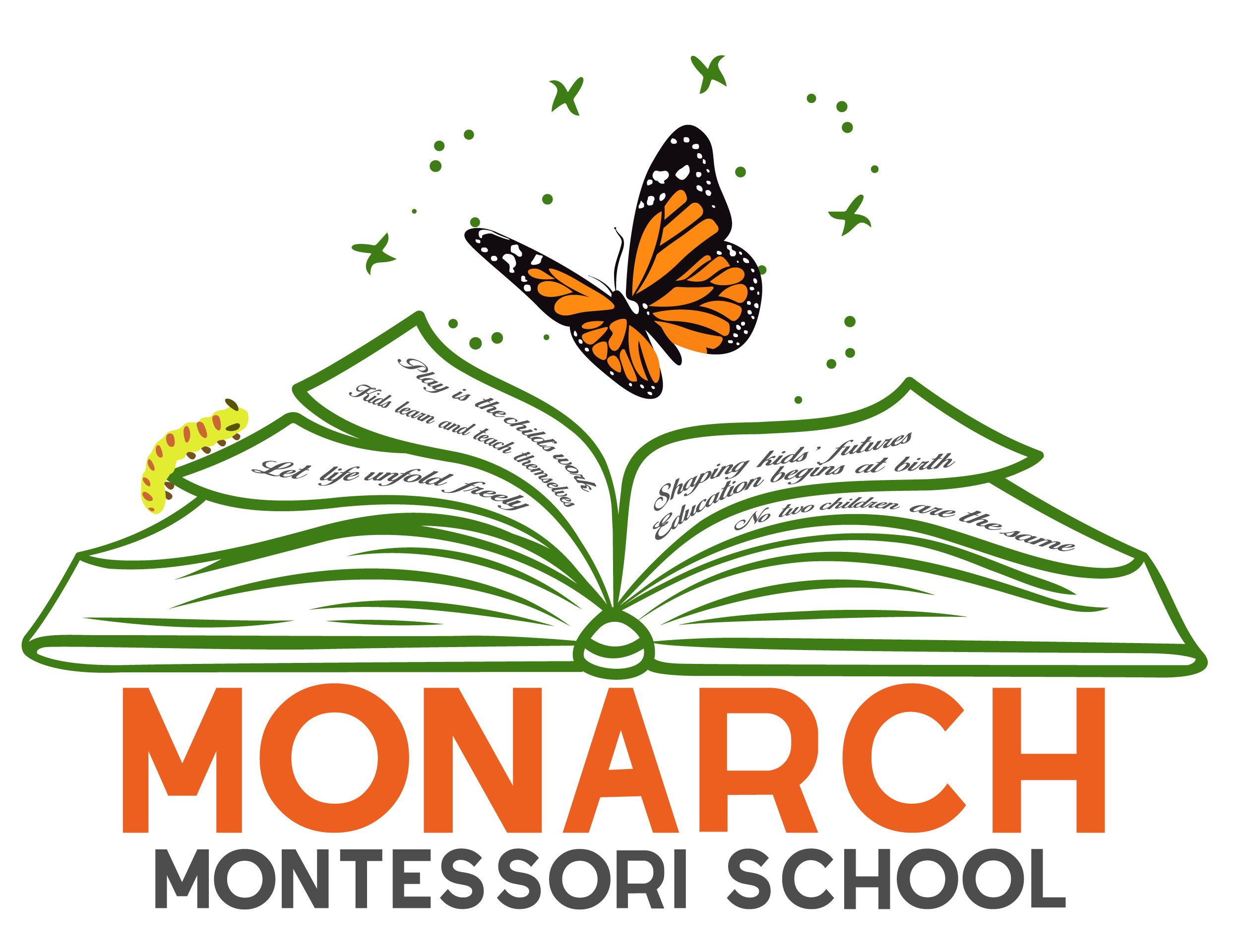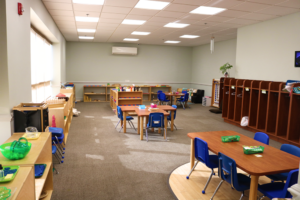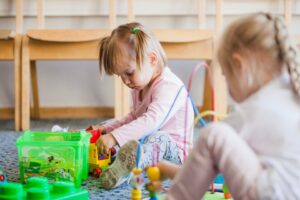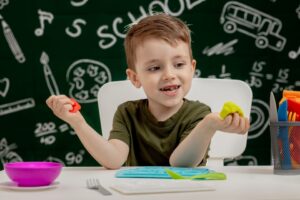Fundamentals of Montessori Education
Montessori education has grown into one of the most respected child-centered philosophies in the world, valued for its emphasis on independence, curiosity, and respect for each child’s individual development. At Monarch Montessori School, these fundamentals guide every learning experience. Below, we explore the core principles that shape the Montessori method and why they remain as relevant today as when they were first introduced.
Who was Dr. Maria Montessori?
Dr. Maria Montessori was an Italian physician, scientist, and educator whose groundbreaking work transformed early childhood education. As one of Italy’s first female physicians, she brought a clinical, observational approach to the study of child development. Working with children who were considered unteachable by conventional standards, she discovered that when given independence, hands-on materials, and an environment suited to their developmental needs, children flourished academically, socially, and emotionally.
Her observations led to the creation of the first “Casa dei Bambini” (Children’s House) in 1907, where she refined what is now known as the Montessori Method, a holistic approach that honors the natural development of the whole child.
The core concept: A child-led approach
At the heart of Montessori education is the belief that children learn best when they are active participants in their own learning. Instead of a teacher dictating what happens and when, Montessori classrooms follow a child-led model in which students choose activities based on their interests and developmental readiness.
This freedom is not chaotic; it is freedom within limits. The Montessori guide carefully prepares the environment, observes each child, and introduces materials at the right moment. When children are trusted to make choices, they develop intrinsic motivation, self-confidence, concentration, and a lasting love of learning.
The prepared environment
Montessori classrooms are intentionally designed to meet the needs of the children who use them. Everything, from the size of the furniture to the placement of materials, supports independence.
A well-prepared environment includes:
- Order: Materials have a clear place, are aesthetically arranged, and are accessible to the child.
- Freedom: Children may move freely, choose their work, and follow their interests.
- Beauty: Natural materials, soft colors, and simplicity create a peaceful atmosphere.
- Accessibility: Low shelves, child-sized tools, and real, functional objects encourage autonomy.
The environment functions as a silent teacher. When thoughtfully arranged, it invites children to explore, problem-solve, and engage deeply.
Key components of a Montessori classroom
A Montessori classroom differs from traditional settings in several important ways:
- Hands-on materials: Montessori materials are self-correcting, meaning children can perceive errors on their own without adult intervention. These materials isolate concepts, such as size, color, sound, or quantity, to help children grasp abstract ideas through concrete experience.
- Mixed-age grouping: Classrooms typically span a three-year age range (e.g., ages 3–6). Older children model leadership and reinforce learning by helping younger peers, while younger children benefit from observing more advanced work.
- Uninterrupted work cycles: Extended periods of focused activity (usually 2–3 hours) support concentration and independence.
- Respectful community: Children learn to care for their environment and each other, fostering empathy and cooperation.
These components combine to create a dynamic, collaborative learning space where children can thrive. Monarch Montessori School classrooms can support students with ADHD because it allows students the chance to learn at their own pace.
The role of the Montessori guide
Montessori educators are known as guides rather than traditional teachers. Their purpose is not to instruct from the front of a classroom, but to observe, support, and gently lead children toward mastery.
A guide:
- Introduces materials individually or in small groups
- Observes each child’s interests and developmental progress
- Steps back to allow independent discovery
- Encourages problem-solving and perseverance
- Models grace, courtesy, and respect
The Montessori guide believes deeply in the potential of every child and nurtures their growth with patience, consistency, and intentionality. Contact Monarch Montessori School today at 973-928-3605 to learn more.
What are the planes of development?
Dr. Montessori identified four planes of development: distinct stages of growth from birth to age 24. Each plane is characterized by different needs, sensitivities, and abilities:
- 0–6 years: The Absorbent Mind
- Children learn unconsciously and effortlessly from their environment.
- 6–12 years: The Reasoning Mind
- Children seek understanding, moral reasoning, and exploration of the wider world.
- 12–18 years: The Developing Social Self
- Adolescents form identity, independence, and social connections.
- 18–24 years: Transition to adulthood
- Young adults refine their purpose and place in society.
Montessori environments and materials are tailored to support the developmental needs of each plane.
At Monarch Montessori School, our programs range from infant, toddler, to elementary where students develop independently. We have been voted best Montessori school in Little Falls. Take a tour of our school to see why.
Practical life and sensorial learning
Two foundational areas of Montessori education are Practical Life and Sensorial activities.
Practical Life: These activities mirror real-life tasks—pouring, sweeping, food preparation, buttoning, or caring for plants. Practical Life builds coordination, independence, and concentration while giving children a sense of purpose. Mastering these everyday skills empowers children and strengthens their self-confidence.
Sensorial: Sensorial materials refine the senses and help children classify, compare, and understand the world around them. Through tactile, visual, auditory, and olfactory experiences, children develop perception, language, and cognitive abilities that prepare them for later academic work.
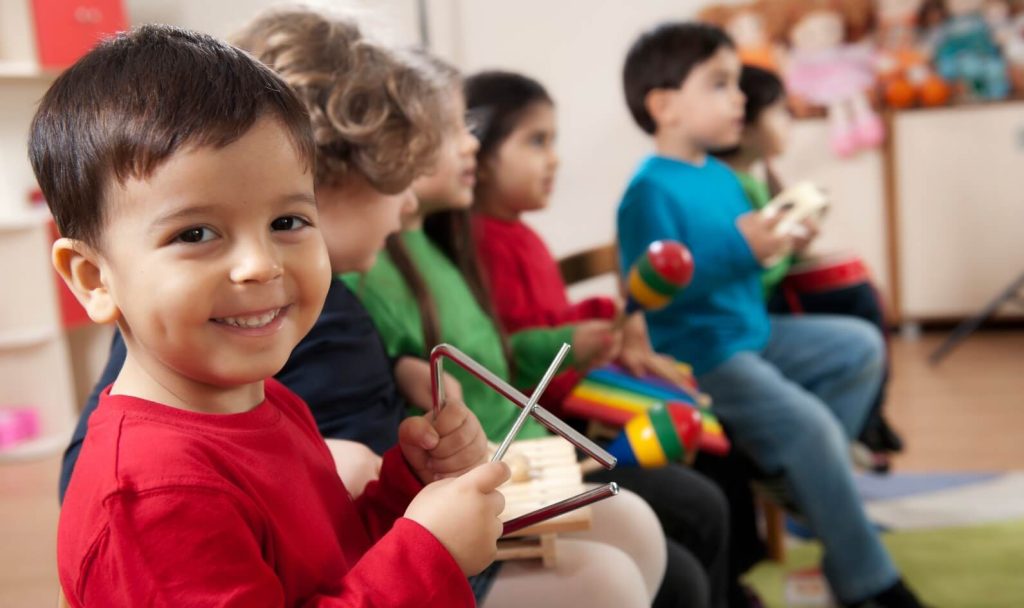
Fundamentals of Montessori Education
The Fundamentals of Montessori Education offer a complete approach to human development. It is a system built on deep respect for the child’s inner drive to learn and grow. This method supports academic achievement. It also develops confidence, social grace, independence, and a true, lasting love for learning.
At Monarch Montessori School, we proudly embrace these fundamentals to support each child’s unique journey. Visit our school at 2 Newark Pompton Turnpike, Little Falls, NJ 07424.
